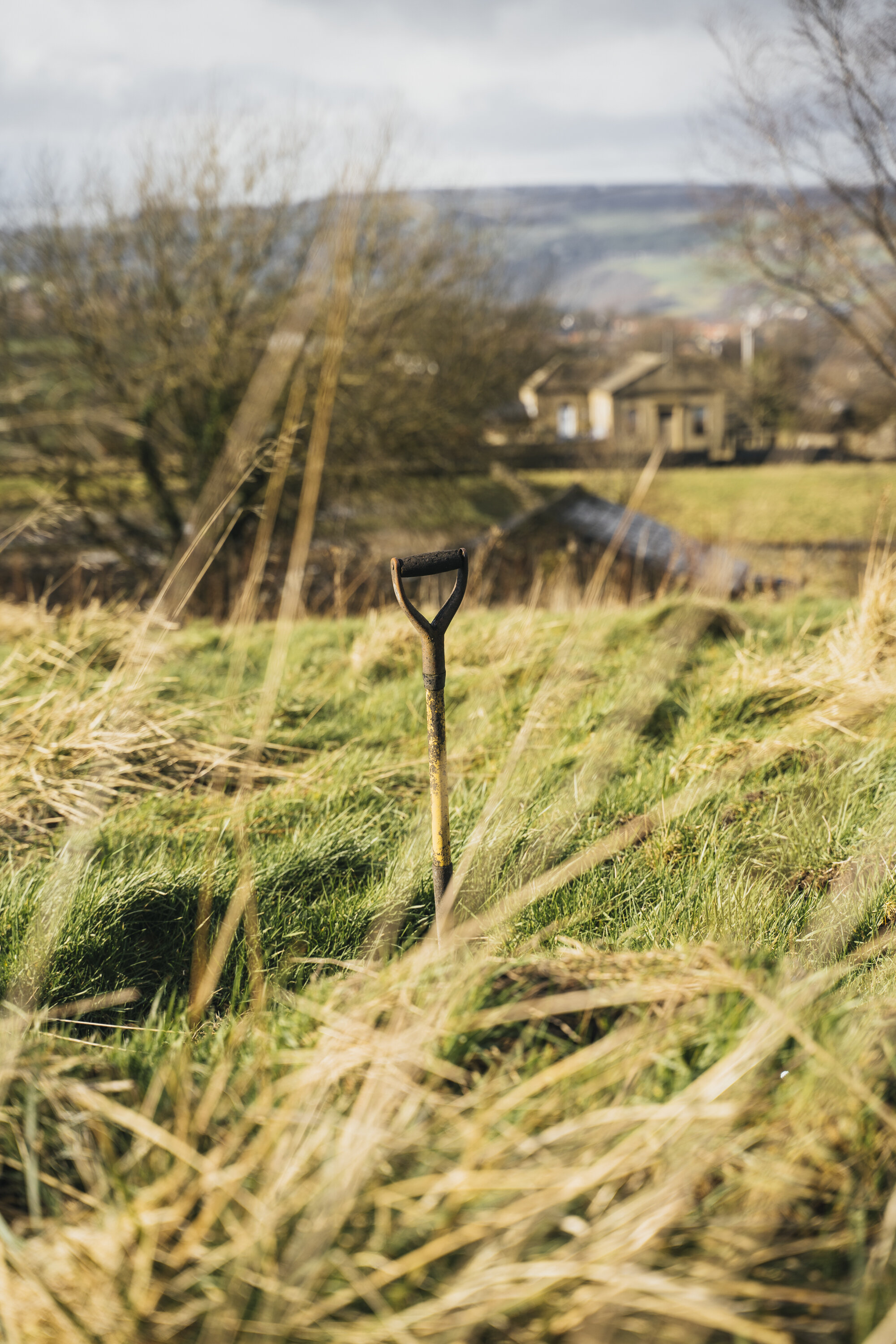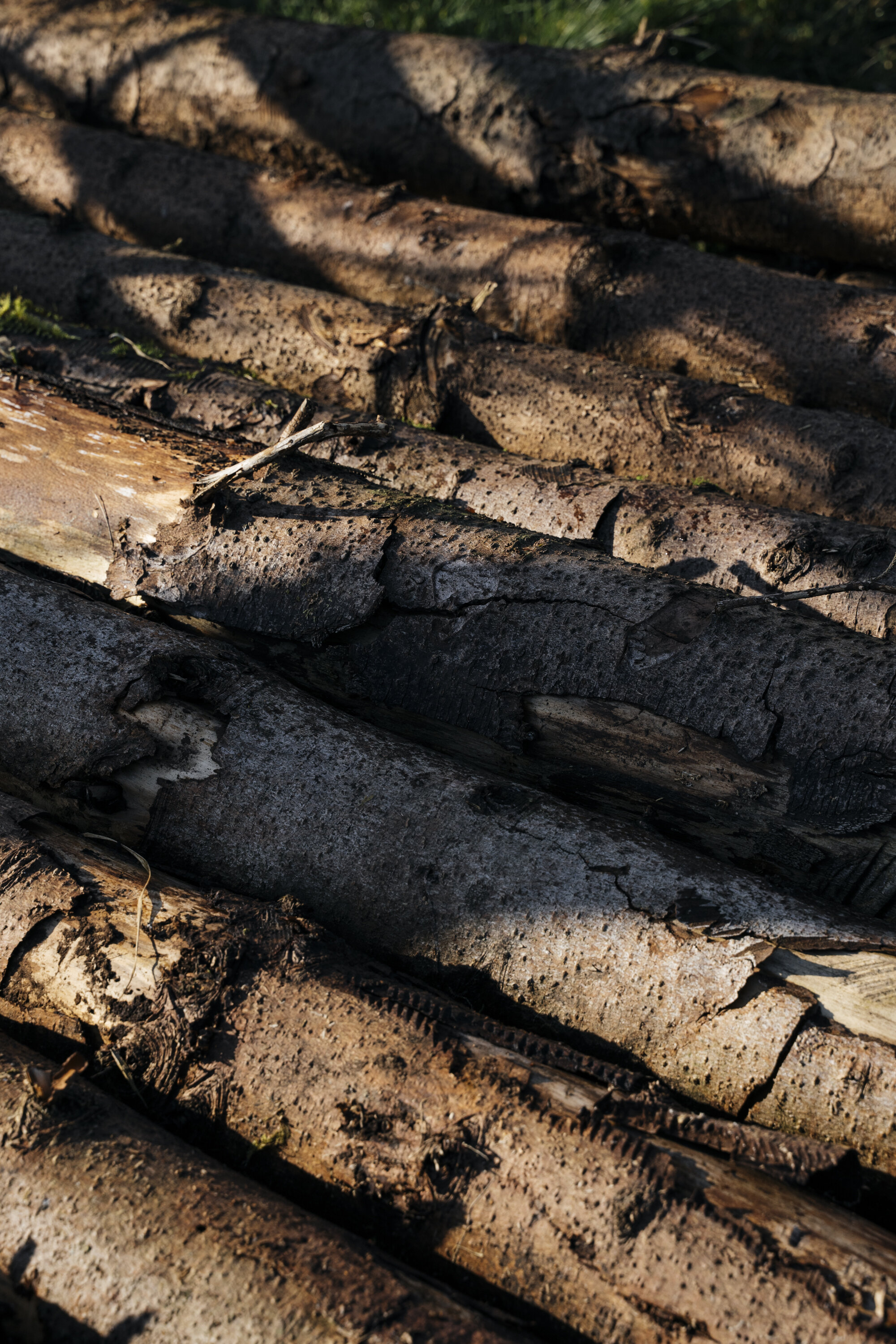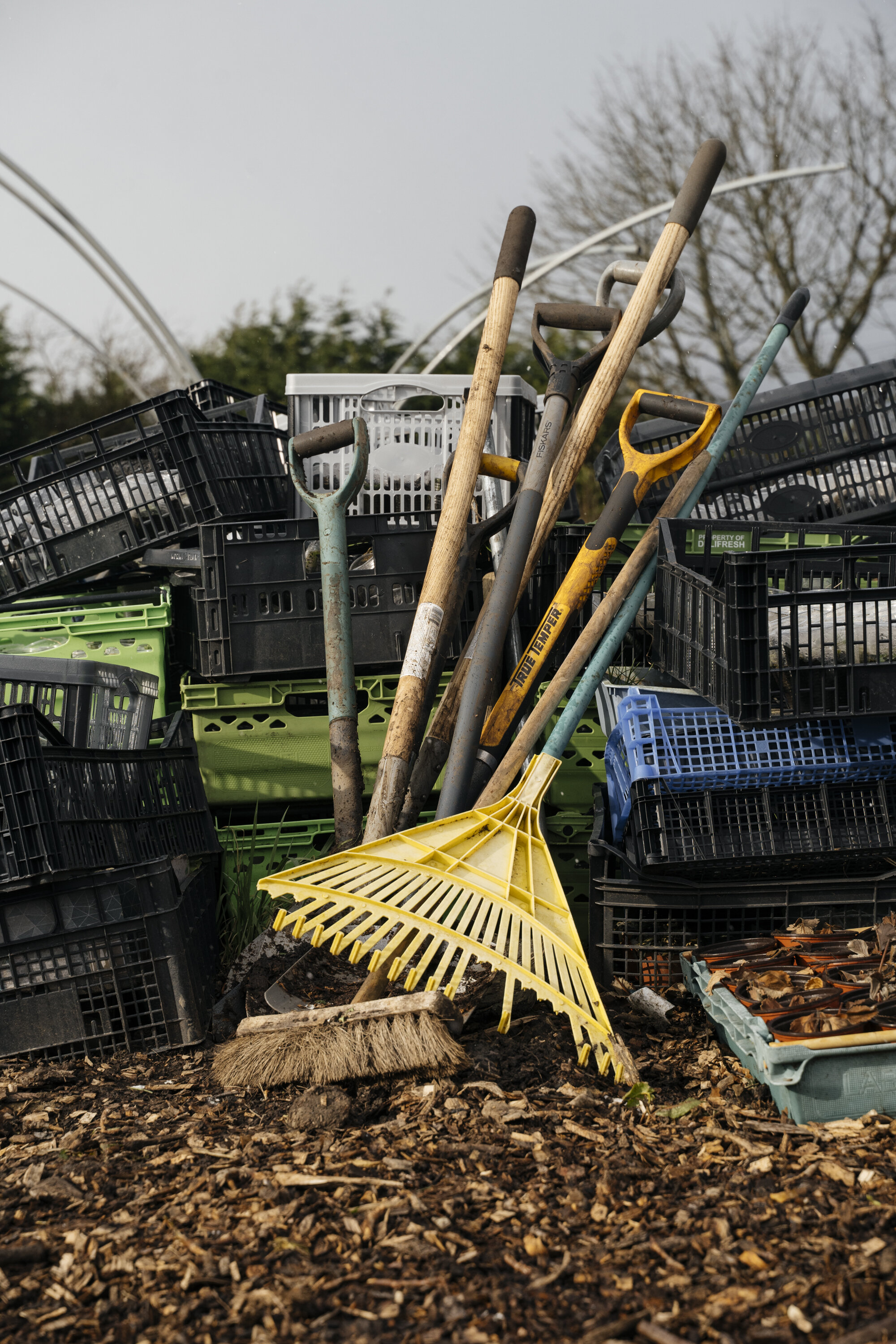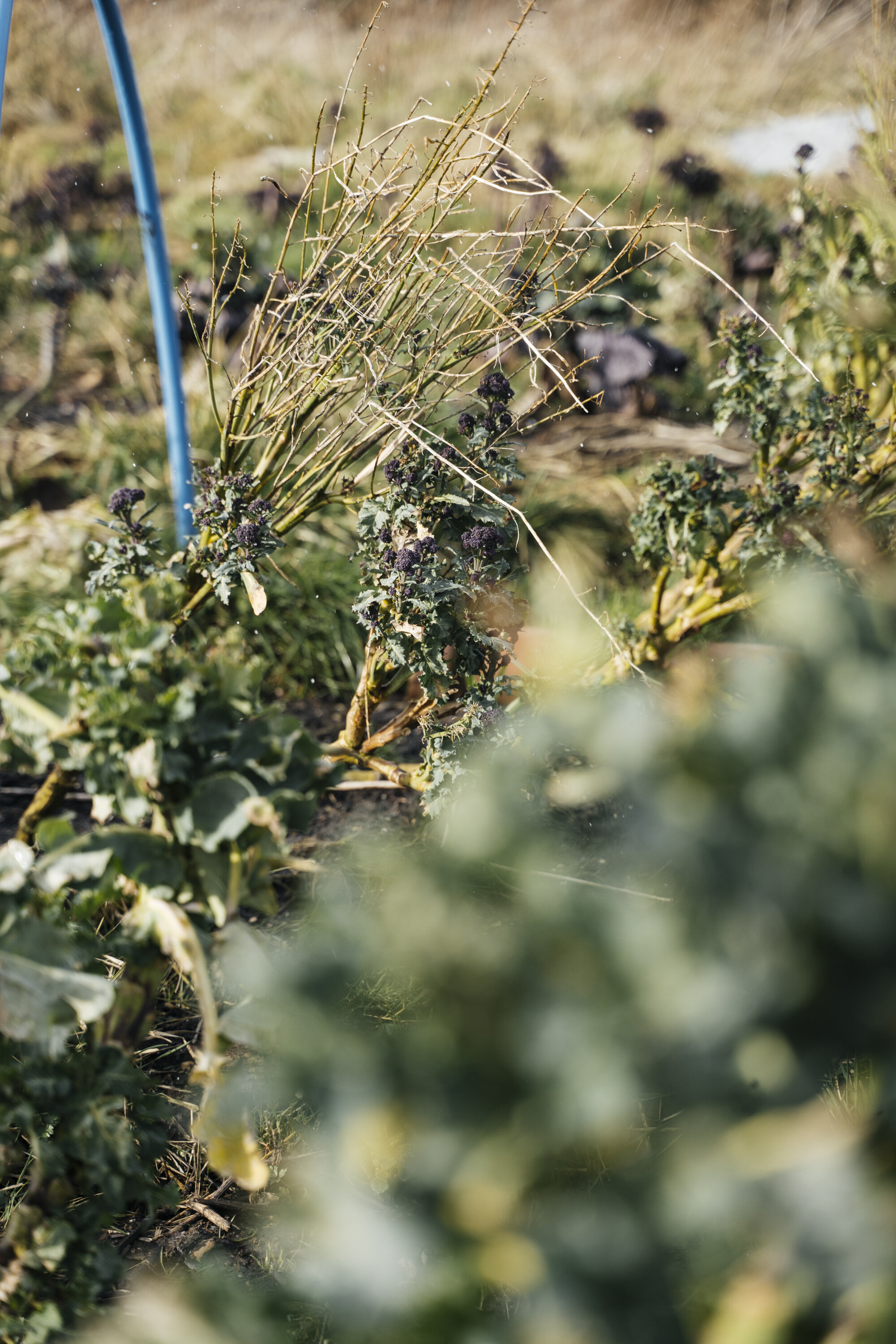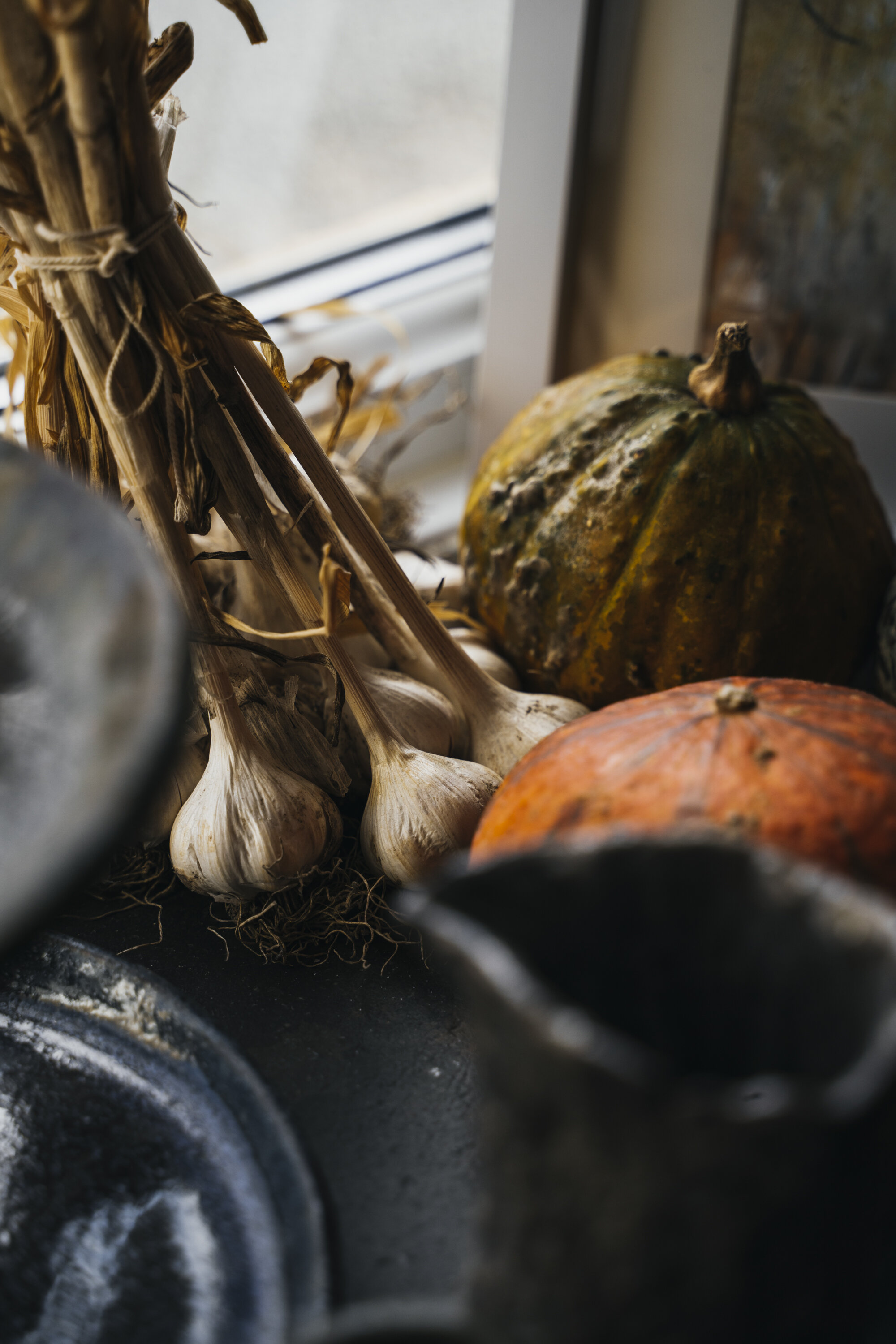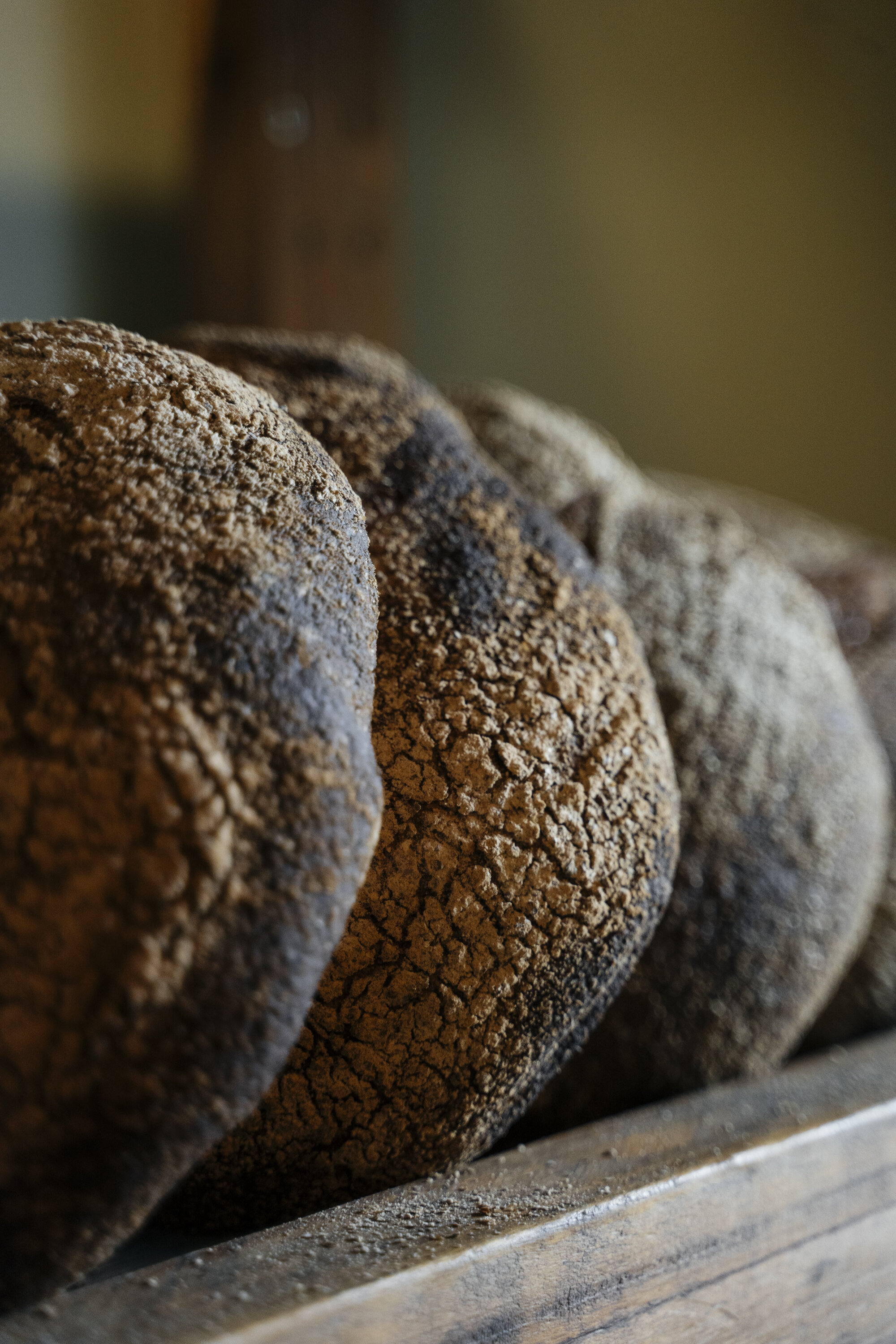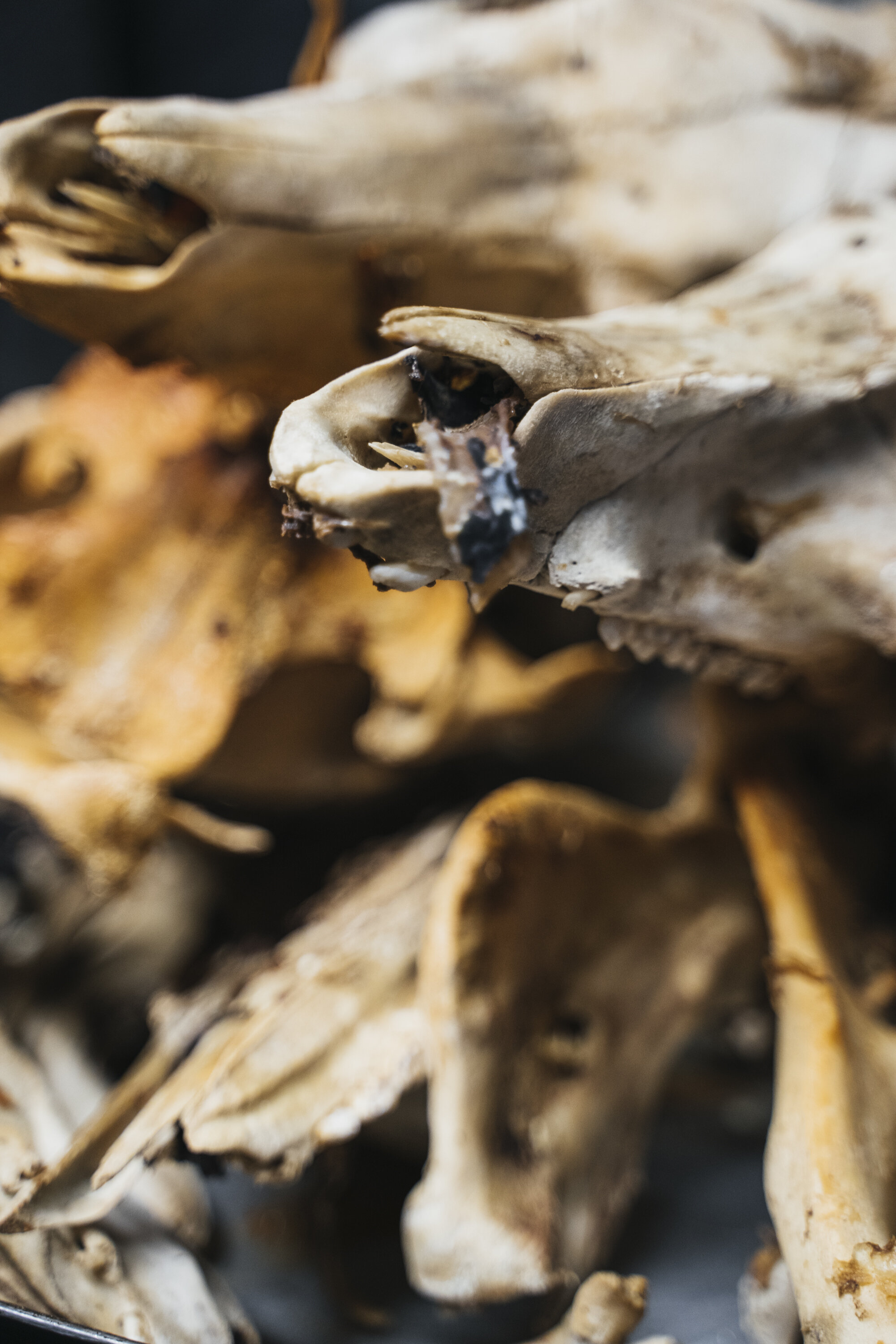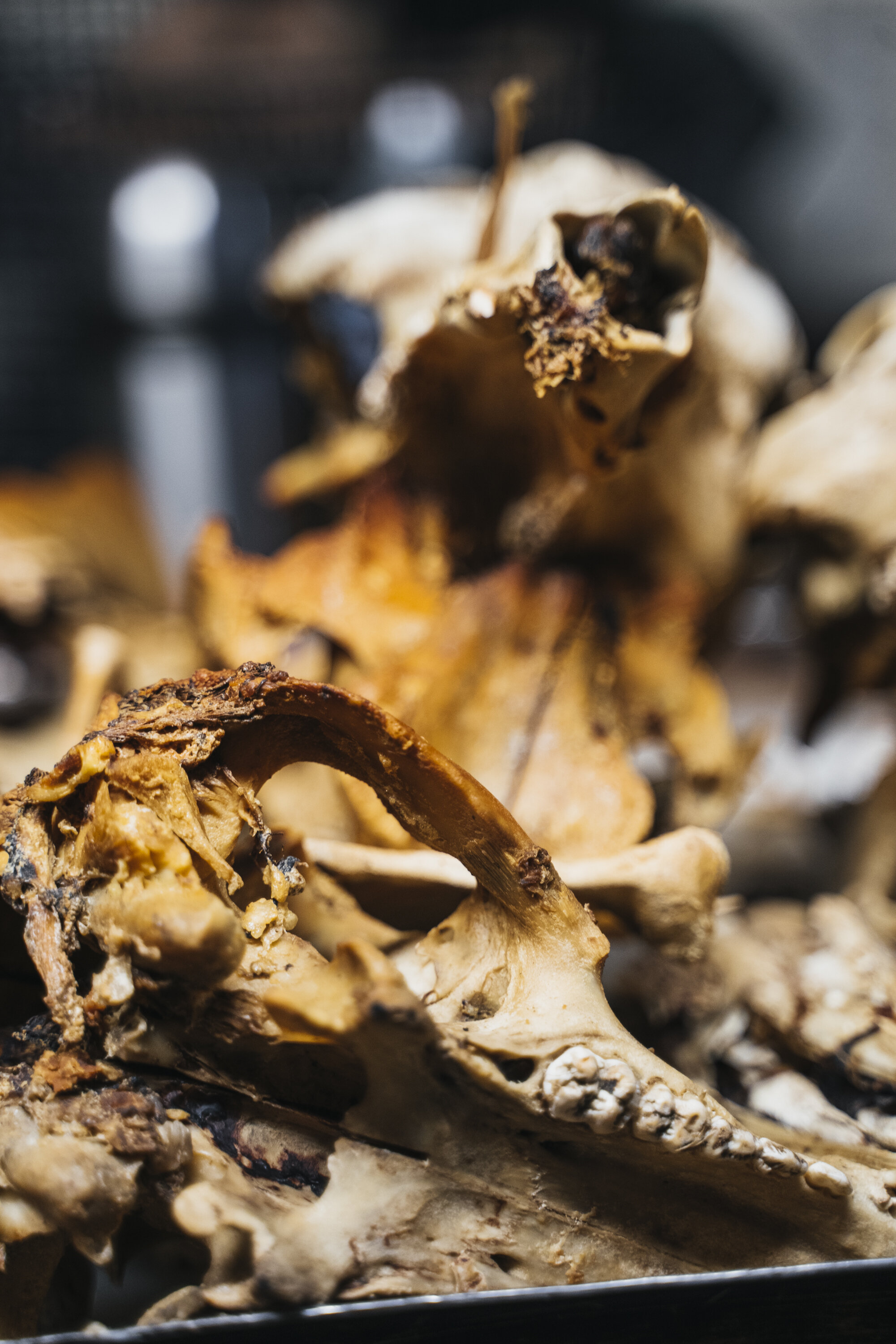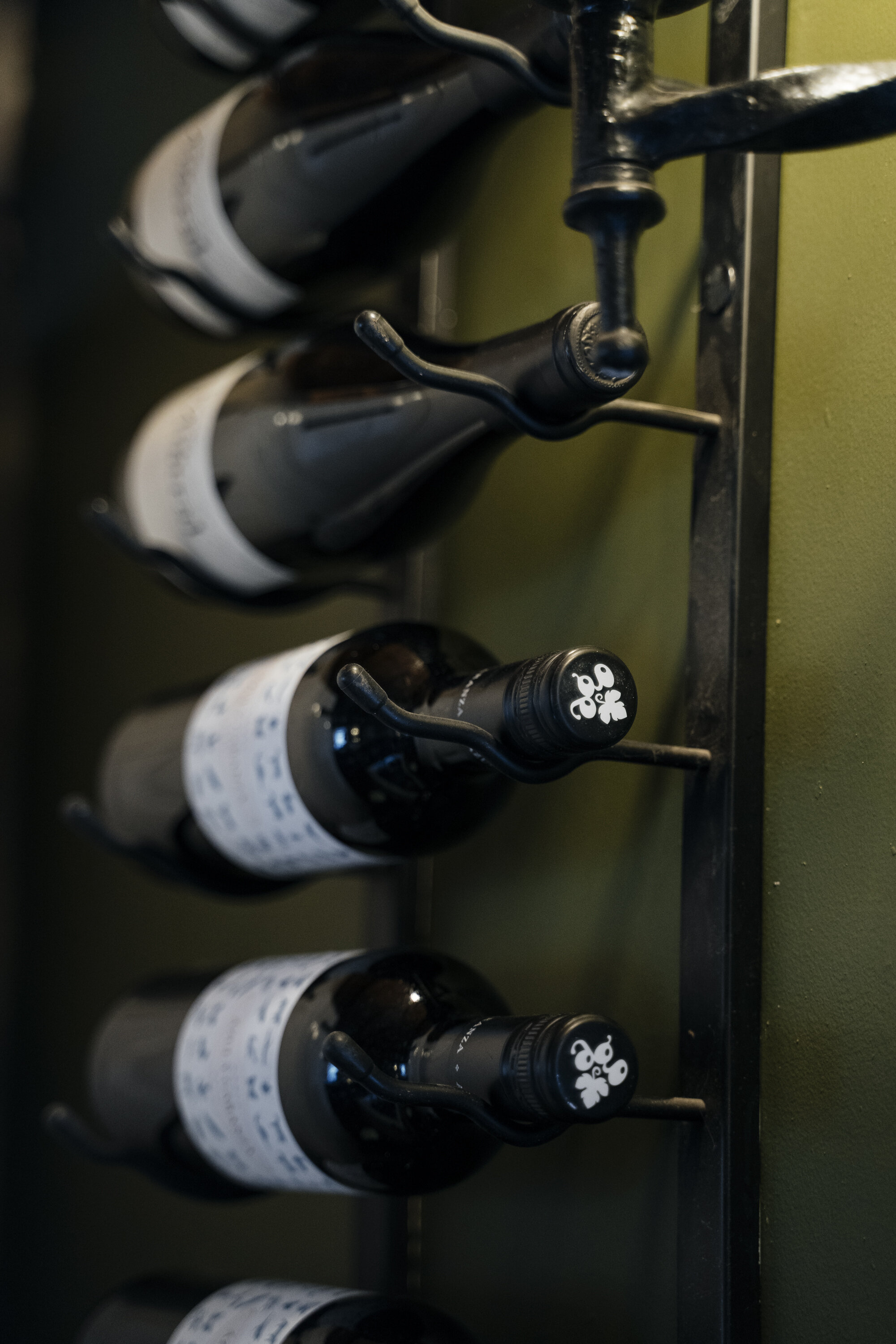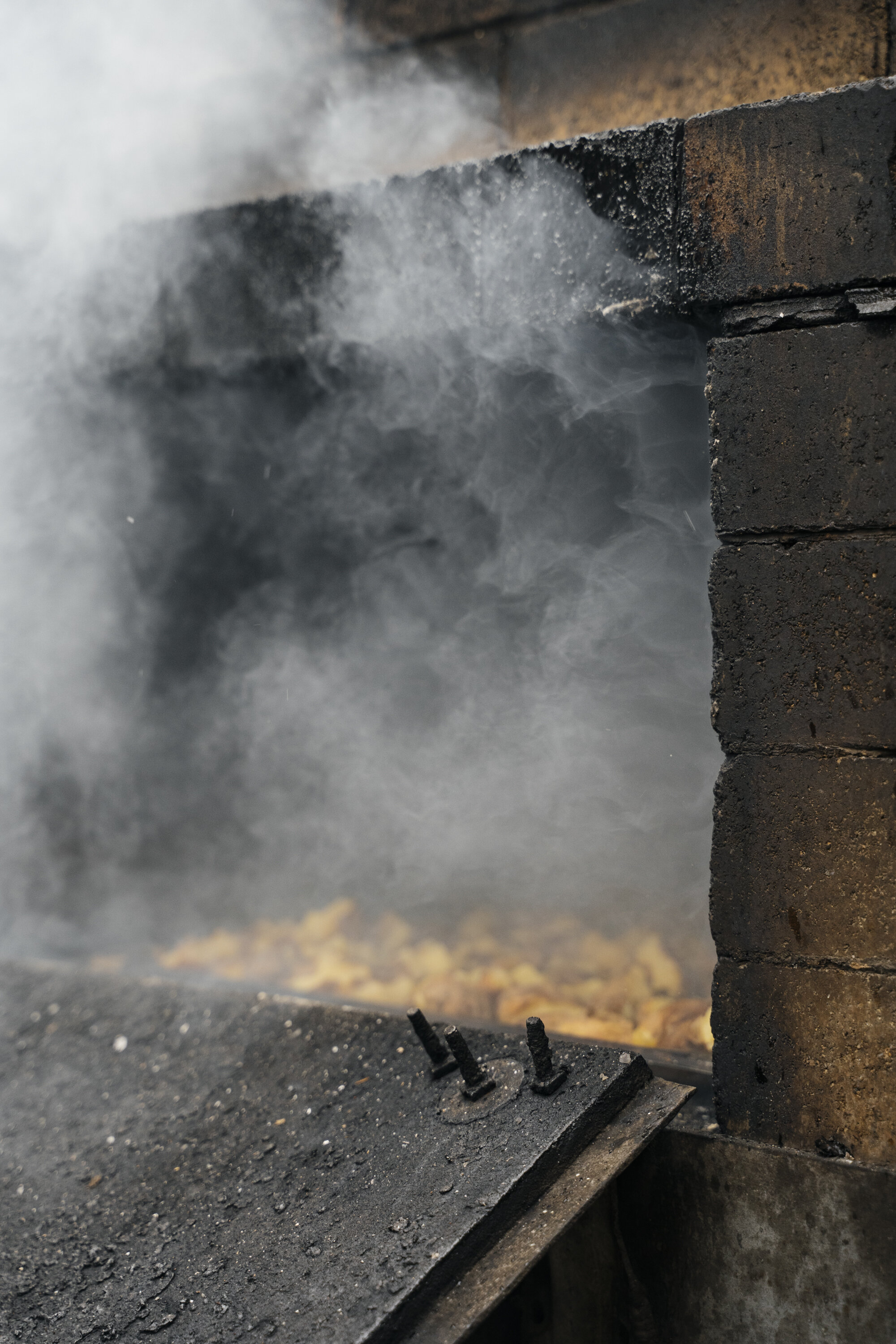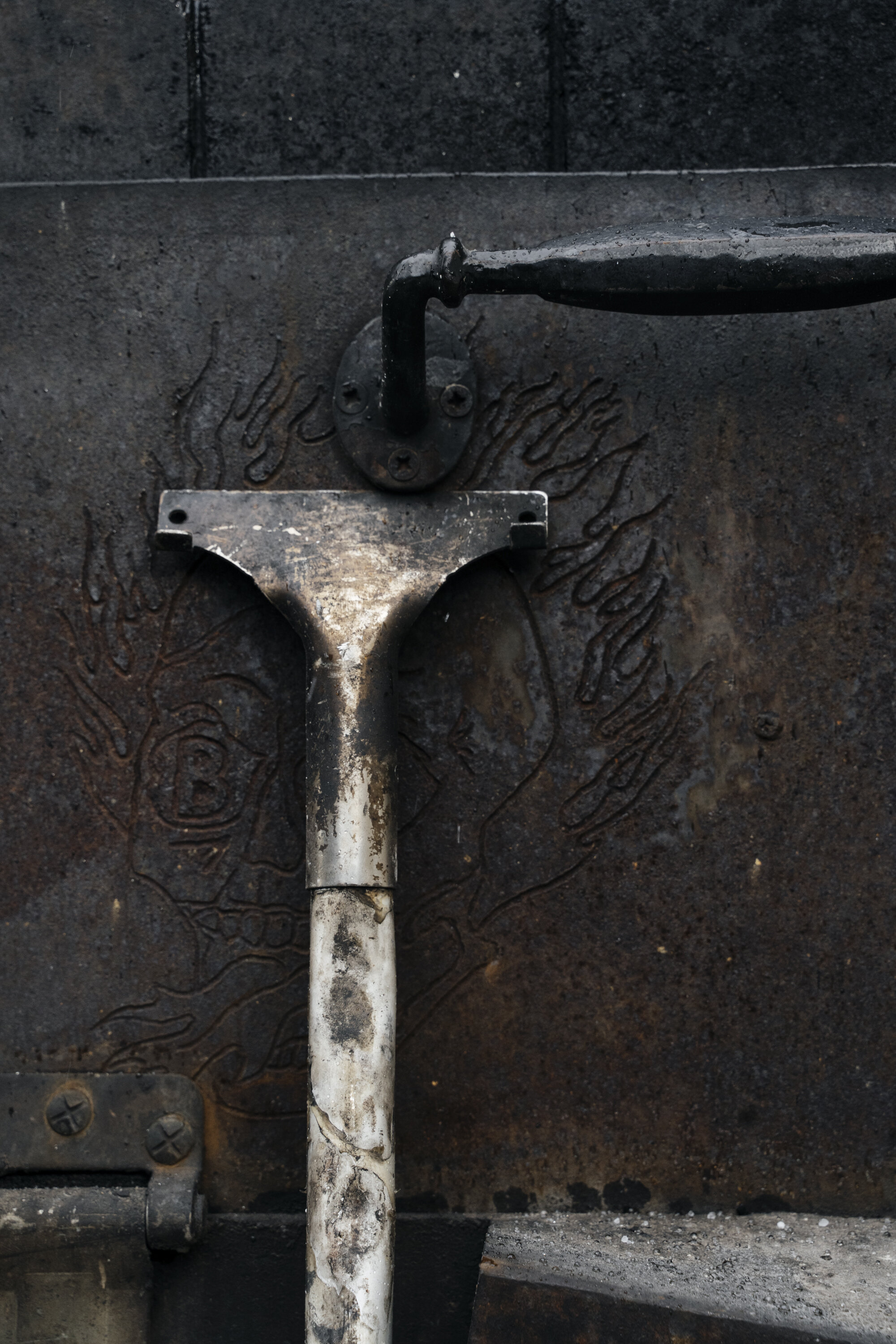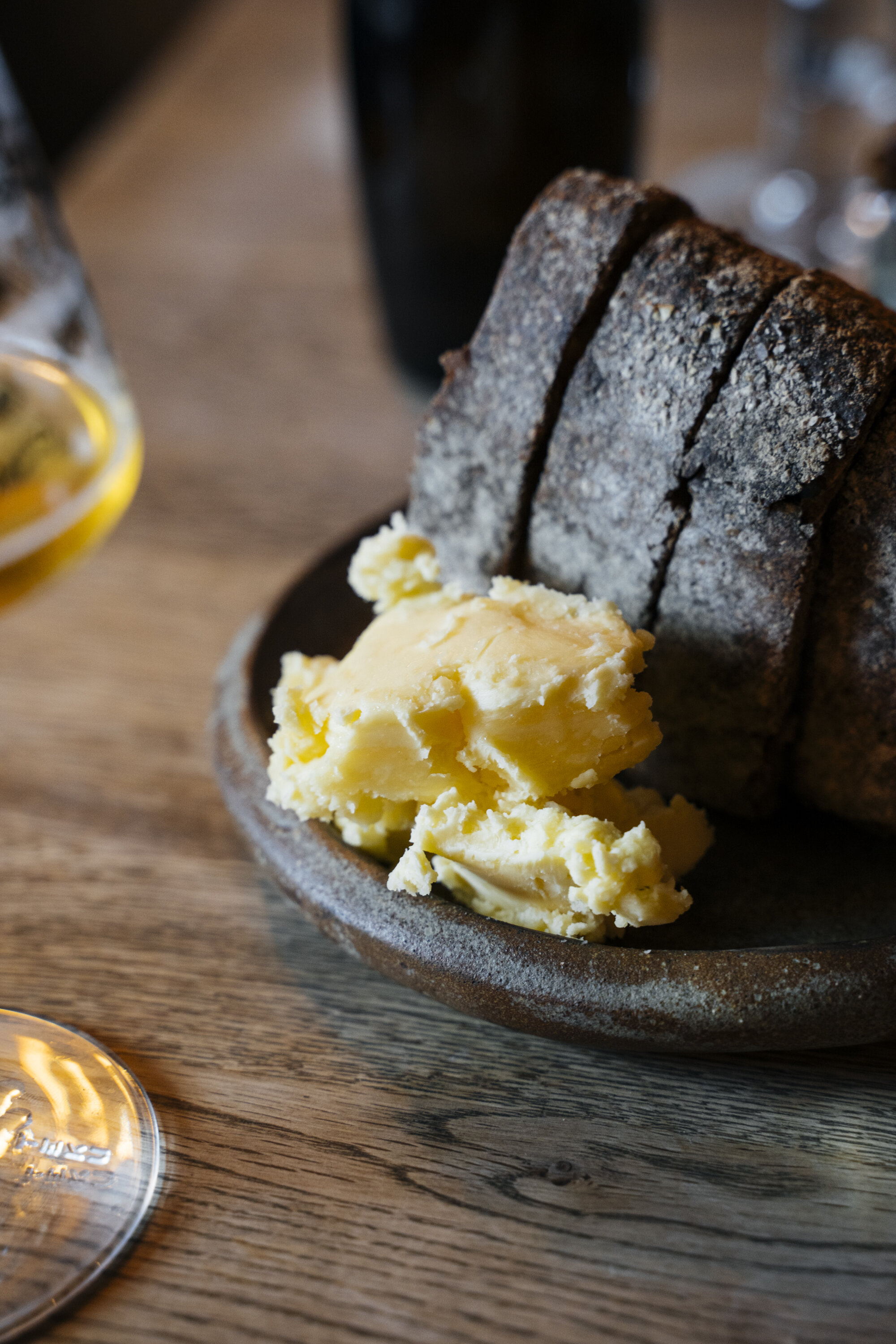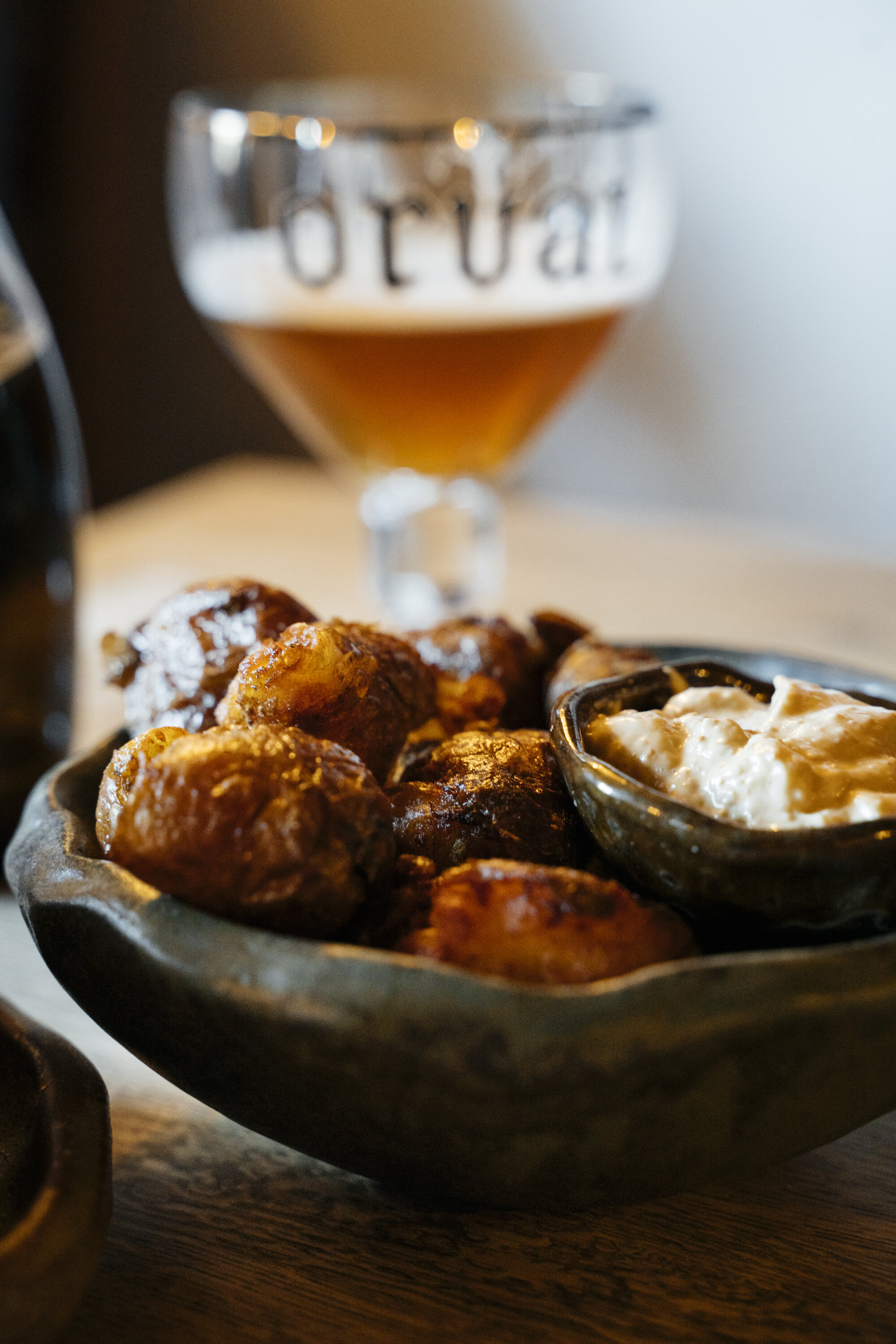With Provenance to Guide Us — The Moorcock Inn, West Yorkshire
High on a hill in the West Yorkshire moors is an unassuming pub, its bare brick standing firm against the wind and weather. It’s called The Moorcock Inn, and if you look closely, you might see muddy footprints on the step, and snapped twigs in the heather across the lane, snitching on early morning foragers.
This is where chef Alisdair Brooke-Taylor and sommelier Aimee Turford have chosen to live and work, after years of travelling the world.
Photography by Nicci Peet
“Al and I met in London, almost 10 years ago now,” Aimee says, as we sit in the picture window of The Moorcock’s dining room, looking out over the kitchen garden.
It’s late February and sleeting sideways; the sky is an impressive shade of gritstone. Smoke plumes diagonally from the restaurant’s brick ovens outside, which have been slowly roasting mutton all night. Hot roast potatoes will be pulled from them throughout the afternoon, served with aioli as the bar snack of your dreams.
“We moved to Australia,” Aimee continues, softly knocking me out of my daydream. “And after working in Sydney, we moved to a rural area where this idea of being able to serve really great produce you’ve just pulled out of the ground really hit home.”
***
On my first trip to The Moorcock three months earlier, I marvelled as my taxi took me almost vertically away from Halifax and straight up into the night sky. Dropped off at the door, I stumbled out of a beautiful crisp early winter’s night into a fire-warmed flagstone bar and ordered a pint of bitter.
My husband Tom, seeing the bottle selection as soon as he arrived, got himself a Saison Dupont and then a Kernel Imperial Brown Stout. We petted a damp dog in the bar before heading to the dining room next door: it was tasting menu time. I’d been looking forward to this for months.
And that’s the charm of this place. I’d put my best accent on braced for fine dining service, embarrassed by my excitement, but the waiting staff were happy and chatty, and knew everything, and answered all of my nerdy little questions.
We had Konishi Shuzo “Genroku Redux” saké with tiny dishes of beautiful pickled and preserved treats from the larder, then a delicate onion tart served with chicken parfait sauce and pickled walnuts. After that, Rodenbach Caractère Rouge—a sour Flanders ale—was paired perfectly with sea bream, monkfish liver sauce and elderflower. I settled in. Not once did I feel like I was laughing too loud, or eating too enthusiastically.
The things they make at The Moorcock make ingredients usually taken for granted seem exciting, wholesome and good. Like the milk in their ice cream, straight from John Haig’s dairy down the lane, or carrots picked in the garden that were turned into a fresh and summery granita for us, despite it being the depths of winter. I still think about the melting fat of my Hebridean mutton belly main course every day. It was a delight. I was delighted.
***
Preserving, pickling and fermenting is every day at The Moorcock. Before you start your meal, you’ll tear through chunks of homemade sourdough, spread with cultured butter churned from sour cream in the kitchen. The house pickles, a perfect pub snack, will be plucked from any number of jars hidden away in the larder like ingredients for a magic spell.
Foraging is important to both Aimee and Alisdair because it’s something they relied on in the early days of building their dream restaurant together. The Moorcock’s pantry is a library of ingredients, there to bring plates together and create complexity and freshness; a store cupboard stuffed full of seasons in stasis.
“Being able to serve something that you can also point to through the window during service is pretty special,” says Alisdair.
“At times we’re thinking ‘Is provenance too trendy a word to use?’ That all this has become faddy in many ways means our reactions are always a little bit defensive, a bit self-conscious, trying to separate ourselves from that.”
Perhaps it seems odd to distance yourself from a movement that has the potential to bring you coachloads of eager customers. But when you sit down with Aimee and Alisdair you begin to understand—what they make isn’t for culture clout. Their dishes are personal; a collection of all the memories of the places they’ve been, and the tastes they’ve loved along the way.
“About eight years ago at Claude’s [an iconic restaurant in Sydney, now closed] we went deep into traditional Asian cooking styles and with that came making our own misos, mirins, rice wines and vinegars,” says Alisdair.
“At In De Wulf Belgium [A Michelin-starred restaurant in Flanders run by Kobe Desramaults that closed in 2017] we had a very similar project. I was super interested that every single thing on the menu had homemade vinegar in it or it was pickled from their own garden.”
“Al’s got quite a sciencey brain,” explains Aimee with a quiet laugh. “It’s a natural instinct for him to research and try to make sense of techniques and processes.”
That instinct to delve deep into researching often-forgotten techniques and traditional recipes matches well with the restaurant’s ethos of sustainability and the reduction of waste—even the bones of the animals are used as fertiliser in the garden.
“We do care about sustainability and the environment and we think it’s the right thing to do,” Aimee explains. “It’s important [for] us to not throw anything away.”
“We tend to even know the names of the animals who come to us from a couple of the smallholdings nearby; the people we work with are chuffed that the animals that they love—they do love them—are put to such good use.”
Alisdair agrees. “We can give you a really long list of why it makes sense to buy a whole animal and a lot of them are boring, but cost is one thing, control of provenance is another—you can make sure of the quality you’re getting. If we were just gonna buy half of a sheep, there’s a lot less flexibility because whoever you get it from needs to be able to sell the other half.”
“We wrote a list of everything we did with a pig on Instagram,” Aimee says. “And it was surprising even to us. Especially now Al’s experimenting with putting bones in the kiln to turn them into a powder that can either form bone china for our ceramics or even be turned into glazes.”
***
Aimee’s drinks list changes from month to month, based on the dishes created by Alisdair and their small team. She prefers natural wines for reasons others might be afraid to place them on a fine wine list—their oddness, their playfulness, their complexity.
“I also happen to think natural wines tend to work really well with food,” she says. “Food that has lots of umami or lots of acidity seems to pair comfortably with some of the more out-there natural wines we love. Due to the preservation techniques we use, our food often does have those qualities.”
Supplying the wine for The Moorcock is Rob Bagot. He’s the owner of Buon Vino, a natural and biodynamic wine shop in Settle, North Yorkshire, nestled somewhere in the crook where the Yorkshire Dales and the Forest of Bowland meet. He’s been working with Aimee and Alisdair from day one, and he believes they’ve created something special.
““Being able to serve something that you can also point to through the window during service is pretty special.””
“They struck me with their humility,” he says about their first few meetings. “They didn’t believe that what they were doing was pioneering, they were just following their passion.”
“What they’ve managed to do with The Moorcock is rare. They combine really high quality, carefully sourced ingredients with skill and creativity. And they do it all in an informal, cosy setting that anyone can relax in.”
Like Aimee, Rob believes that natural wine is the perfect accompaniment to a menu filled with unusual, creative, delicious food.
“One of the problems with conventional wine production is that the nuance and the subtlety is manufactured out of it. Ultimately natural wine is about taking it back to its origins, rediscovering the authentic flavours of those wines. Aimee knows what natural wine can offer to Alisdair’s dishes. It makes sense. The revival of natural wine in gastronomy started with sommeliers looking for wines that complimented and enhanced food, not overpowered it.”
You might be surprised to learn that The Moorcock’s ever-changing wine list is surprisingly affordable. But then, a commitment to making good things more accessible is just another way that this place absolutely rules.
“You might usually expect to find wines like Domaine Milan or a Chateau de Beru Chablis in Michelin Starred restaurants,” Rob says. “Aimee’s put them on their list because she loves them, and she wants you to try them—by the glass if you like.”
Of course, not every guest is going to walk into a country pub and order a £12 glass of wine. But both Aimee and Alisdair have worked hard to share their passion and built trust with their guests who no longer bat an eye when a biodynamic rose shows up alongside a bottle of lambic.
“Their offering is really exciting, and they’re doing it in an informal way at a reasonable price. It allows people to access those wines. They want to bring the wine that they’re enthusiastic about to anybody who visits. And they’re doing it just outside of Sowerby Bridge.”Saké also has a presence on The Moorcock’s list because of its food-friendliness, and the same goes for the many great beers featured on the drinks list and on the pairings menu too.
“I think Belgian beers are the best addition ever to any list. I just got hooked on pairing beers with food while I was the sommelier at In De Wulf, especially the complexity of the wild fermentation stuff. Also, the age-worthiness of them really appeals, so something like a Cantillon or a Tilquin we can put it away upstairs to mature and drink in maybe 10 years time, making these beers comparable to wine on every level.”
It’s exciting to see a place such as The Moorcock, considering beer as the natural contemporary to it’s deeply thoughtful food. Yes, they sell wine—great wine—but what excited me more was the gentle persuasion of the pub next door being allowed not just to take up space on the menu, but to influence it. Like a friendly hand on the shoulder, glasses of beer were held up as the treasures they really are, guiding us through unfamiliar flavours with ease—even bravado. Beer is at home with food. Everyone at The Moorcock knows this.
***
If you’re a pub, being embraced by your community is vital. There’s an equilibrium to find to keep everyone happy, especially if you’re making radical changes to the place. Before I visited, I wondered how the people of Norland had handled suddenly having a dining destination on their doorstep.
Rainy jackets hung on hooks by the door, pints settling, fire crackling; you can’t move for people telling you how much they like it here. A local kindly talked me through the blackboard menu when I arrived. A flushed and beaming couple with a baby and one and half pints of IPA by Leeds-based Anthology Brewing Co. told me this was their first drink together since the bairn was born.
This pub is important to Aimee and Alisdair. “We didn’t want anyone to come in for a pint and see all the tables reserved and feel alienated, like there was nowhere for them to sit, as though they weren’t welcome. We work really hard to keep it as a proper pub. And it works.”
“If the restaurant was something quite separate and distinct from the pub, it would create a discord,” Aimee says. “It makes the whole place feel open to everyone. I’ve seen locals showing new people around, explaining things to them. There’s almost like a sense of pride, like it’s their place. It wouldn’t be the same without them.”
“It was a bit of a dream that people could come in for a pint after walking their dog on the moor and sit with people who’ve travelled especially to eat with us, and we can’t believe our luck that it really happens. That it actually came true.”
***
Editors Note: The Moorcock closed for business in March 2023, and you can read Katie’s tribute to it here.










